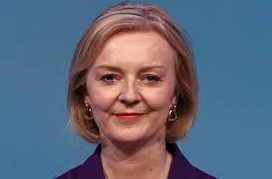
Former Prime Minister Faces Criticism Over Use of Public Funds After Brief Time in Office
Liz Truss has been claiming from the public fund designated for former prime ministers, despite only serving 49 days as the UK’s leader. The £115,000-a-year Public Duty Cost Allowance is designed to help cover the expenses of running an office and fulfilling public duties after leaving office. However, Truss has already claimed £23,310 in the first five months following her resignation, with further claims expected to be disclosed next year.
This revelation has sparked widespread criticism, particularly from opposition parties. Labour leader Sir Keir Starmer, who had previously argued that Truss should “turn down” the fund given her short tenure, said her actions contradicted her calls for tax cuts. “If Liz Truss wants to cut tax, she should lead by example and stop taking taxpayers’ money,” he said.
Liberal Democrat Cabinet Office spokesperson Christine Jardine called on Prime Minister Rishi Sunak to intervene, describing it as “an outrage” that Truss was benefitting from the fund while families faced financial struggles. “Liz Truss profits from her own failure, and that is unacceptable,” she added.
The Public Duty Cost Allowance is intended to cover costs such as running an office, managing correspondence, and providing support for public engagements. In the 2022/23 financial year, former prime ministers Tony Blair and John Major were the only ones to claim the full £115,000, with Gordon Brown coming close at £114,627.
Truss, whose leadership ended abruptly on October 25, 2022, following her economic crisis and the collapse of her mini-budget, defended her actions a year later. She recently criticised economists and “institutional bureaucracy” for her downfall and hinted at future plans to intervene in Conservative politics.
The Cabinet Office’s financial reports also revealed the cost of Boris Johnson’s taxpayer-funded legal defence in relation to the partygate inquiry, amounting to £263,079. The spending was scrutinised by the National Audit Office, with its chief, Gareth Davies, noting the public interest in whether such legal costs were a legitimate use of taxpayers’ money. While the spending was deemed “not quantitatively material” in the context of the department’s overall finances, Davies suggested it was a “borderline” decision and questioned the justification for using public funds for the former prime minister’s defence.









